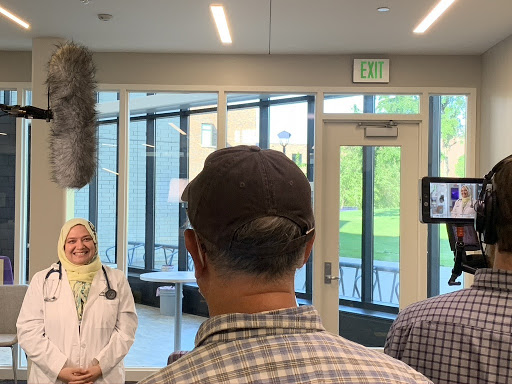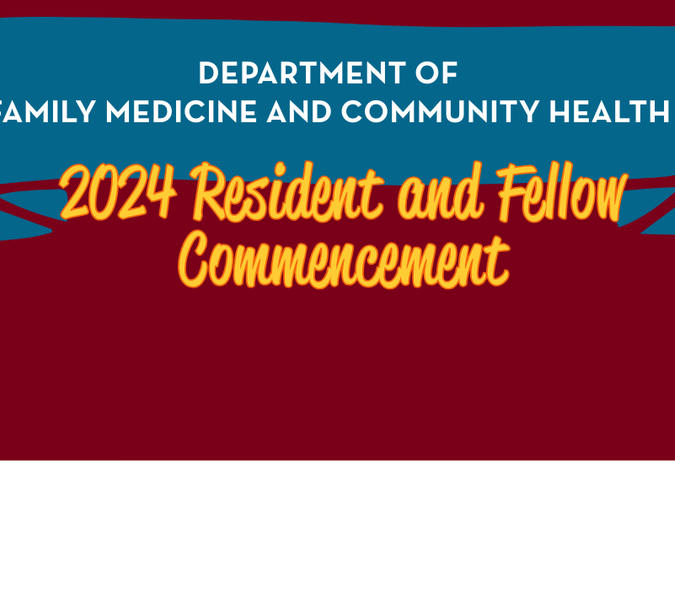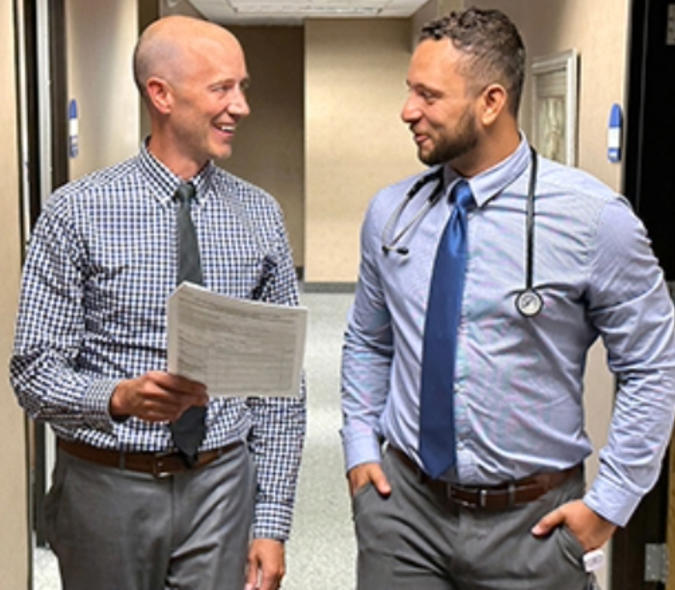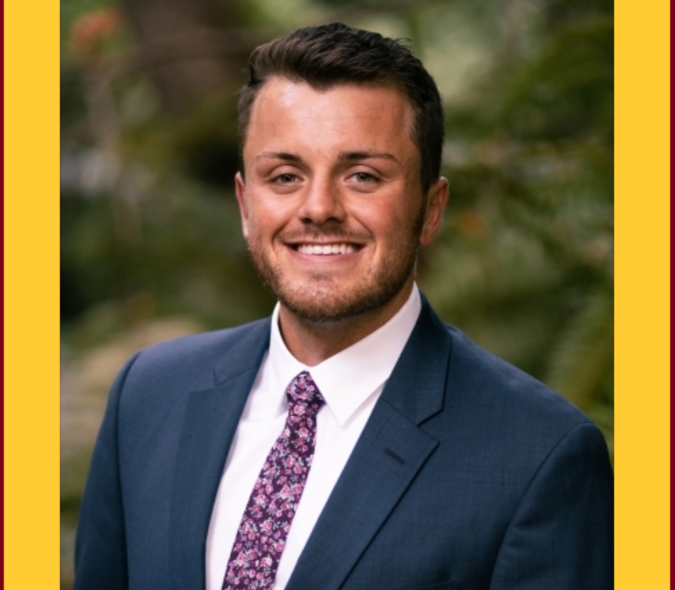
Documentary to explore health equity and Mankato dental-medical clinic
Marjan Jahani Kondori, MD, MPH, is a first-year resident in the Mankato Family Medicine Residency program. She recently completed a rotation at the new Mankato dental-medical clinic and, in this interview, Dr. Jahani Kondori discusses the upcoming PBS documentary that will spotlight the clinic and the state of dental care in rural Minnesota.
Can you tell us about the documentary that's being filmed?

People from PBS came out to our Mankato dental-medical clinic in August to interview clinic founder Erin Westfall, DO, myself, and others. The focus of the documentary is the oral health crisis in Minnesota, especially in the rural setting where there's not many dentists available. Another issue is that, while Medicaid covers patients younger than two years old to be seen by dentists, it's hard to find dental providers that see kids under two or three, independent of insurance. Low-income families are at a disadvantage because they may not be able to afford dental visits.
Minnesota is generally seen as high ranking in overall health, but that statistic only reflects the majority population, 84 percent of whom are white. This documentary will explore another, less visible side of our state when it comes to the health of certain populations: older adults, people with special needs, people who live in rural areas, people of color, and low-income families. The documentary will address the challenges and opportunities that these patients are facing and raise awareness around the health of indigenous, Hispanic, African American, and other minority populations. In short, we're not doing a very good job, and it needs to change on a large scale — and one important example of this work is the Mankato dental-medical clinic.
How has the dental-medical clinic developed since it opened in February of 2020?
When we first opened the clinic, the plan was just to do some fluoride varnish at that time during a routine well-child visit. But quickly after launching, we saw a need for full service and providing dental care to all ages. Right after the clinic launched in February 2020, COVID hit. From March to July, the Minnesota State University School of Allied Health's Dental Program students who were participating in the program were pulled out. Since July, we have been working to launch again, and in September we were able to open the clinic doors once more. Now we are ramping up, which is exciting.
What is a rotation experience like there?
Residents complete a one-month rotation for pediatric outpatient, and usually we see seven to eight patients a day. On Mondays, Wednesdays, and Fridays, a dentist practices in the clinic.
Typically, when a pediatric patient comes in, they are there for a well-child visit. We'll talk with the parents about any health concerns, whether mental, medical, or social, such as vaccinations or developmental milestones, and we'll incorporate care from other practitioners as needed.
How does this dental-medical clinic benefit the Mankato community?
A lot of people in Mankato don't have treated city water. For those numerous patients who only have well water, a fluoride varnish is extremely important. We look to serve those patients specifically. We'll also check the teeth overall, examine the mucosal membrane of the mouth, and look for developing cavities. If we see something of concern, we inform their dental provider right away — sometimes the same day. The dental-medical clinic is connected to the pediatric outpatient clinic, which makes it really easy for patients to see to their medical and dental needs in one visit.
Making it a comprehensive experience for our patients was really key with the entire initiative, especially since a large part of Mankato is rural. Many people aren't able to see a dentist as often as those in non-rural areas, so our clinic helps address that need. Also, there's data showing that a significant number of people see their primary care physician but skip seeing their dentist. While this tendency isn't relegated to just Mankato, Dr. Westfall started the dental-medical clinic with that in mind.

And why is incorporating dental health into comprehensive health so important?
As family physicians, we are trained to pay attention to all aspects of our patients' health — and oral health is a very large component. A lot of people may not realize that many chronic diseases can begin from tooth decay. This is why it's so important to start caring for the teeth from infancy so we can address budding health conditions as early as possible. Catching a problem early on can also decrease the overall cost of care. People often come to us first with pain or concerns, and that includes toothaches. With our dental-health clinic, it puts us in a position of being able to address oral health issues right at the outset and promote oral health.
How would you say this experience is helping you meet your long-term goals as a physician?
When I began with family medicine, I didn't anticipate learning about dental health in my training. But I quickly realized that oral health is an important part of overall health, and that this rotation would further develop my skills in caring for the whole person. I find it's important to realize that any single health provider can't solve health issues alone; it takes a team. For example, I could prescribe a medication that affects saliva flow, which in turn affects dental health. By talking to the patient's dentist, I can consult with them and adjust the medication based on the amount of tooth decay they're seeing.
Completing this dental rotation has helped me become a more well-rounded family physician who is better able to care for patients through all aspects of health.
The PBS documentary is expected to premiere in January 2021. To learn more about the Mankato dental-medical clinic, read this article.



